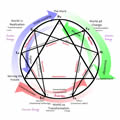Reasoning and Conscience
2015-01-28
For the last couple of days I’ve been researching the link between reasoning and conscience. Through a Wikipedia article I was led to a source that I’ve never used before, namely the Catechism of the Catholic Church. Contained in that document is the following:
“Conscience is a judgment of reason whereby the human person recognizes the moral quality of a concrete act that he is going to perform, is in the process of performing, or has already completed.”
The short section goes on to make several other interesting comments such as…
- “The truth about the moral good, stated in the law of reason, is recognized practically and concretely by the prudent judgment of conscience.”
- “A well-formed conscience is upright and truthful. It formulates its judgments according to reason,…”
- “Conscience is a law of the mind”
- “It is important for every person to be sufficiently present to himself [remembering himself ??] in order to hear and follow the voice of his conscience.”
- “When he listens to his conscience, the prudent man can hear God speaking.”
With a few notable exceptions, all of these formulations appear to be in striking harmony with a 4th Way understanding of conscience. The full text of the section on conscience is given below.
CATECHISM OF THE CATHOLIC CHURCH
PART THREE: LIFE IN CHRIST
SECTION ONE MAN'S VOCATION LIFE IN THE SPIRIT
CHAPTER ONE THE DIGNITY OF THE HUMAN PERSON
Article 6 MORAL CONSCIENCE
I. The Judgment of Conscience
1777 Moral conscience, present at the heart of the person, enjoins him at the appropriate moment to do good and to avoid evil. It also judges particular choices, approving those that are good and denouncing those that are evil. It bears witness to the authority of truth in reference to the supreme Good to which the human person is drawn, and it welcomes the commandments. When he listens to his conscience, the prudent man can hear God speaking.1778 Conscience is a judgment of reason whereby the human person recognizes the moral quality of a concrete act that he is going to perform, is in the process of performing, or has already completed. In all he says and does, man is obliged to follow faithfully what he knows to be just and right. It is by the judgment of his conscience that man perceives and recognizes the prescriptions of the divine law:
Conscience is a law of the mind; yet [Christians] would not grant that it is nothing more; I mean that it was not a dictate, nor conveyed the notion of responsibility, of duty, of a threat and a promise.... [Conscience] is a messenger of him, who, both in nature and in grace, speaks to us behind a veil, and teaches and rules us by his representatives. Conscience is the aboriginal Vicar of Christ.
1779 It is important for every person to be sufficiently present to himself in order to hear and follow the voice of his conscience. This requirement of interiority is all the more necessary as life often distracts us from any reflection, self-examination or introspection:
Return to your conscience, question it.... Turn inward, brethren, and in everything you do, see God as your witness.
1780 The dignity of the human person implies and requires uprightness of moral conscience. Conscience includes the perception of the principles of morality (synderesis); their application in the given circumstances by practical discernment of reasons and goods; and finally judgment about concrete acts yet to be performed or already performed. The truth about the moral good, stated in the law of reason, is recognized practically and concretely by the prudent judgment of conscience. We call that man prudent who chooses in conformity with this judgment.
1781 Conscience enables one to assume responsibility for the acts performed. If man commits evil, the just judgment of conscience can remain within him as the witness to the universal truth of the good, at the same time as the evil of his particular choice. the verdict of the judgment of conscience remains a pledge of hope and mercy. In attesting to the fault committed, it calls to mind the forgiveness that must be asked, the good that must still be practiced, and the virtue that must be constantly cultivated with the grace of God:
We shall . . . reassure our hearts before him whenever our hearts condemn us; for God is greater than our hearts, and he knows everything.
- John Hutcherson's blog
- Log in to post comments
